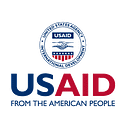Harvests of Hope
Cultivating Resilience through Financial Support in Burkina Faso
In the village of Boalin in Burkina Faso’s Oubritenga Province, a group of 30 resilient women have tilled the land, cultivating produce around the village reservoir during the dry season and growing food crops during the rainy season. For a decade, the Malgbzanga Cooperative has grown onions, tomatoes, and other produce while raising small ruminants, such as goats and sheep.
In 2018, the cooperative’s members generated XOF 4,500,000 in sales. Their success continued in 2019 with a 67% growth in sales followed by 30% growth or XOF 9,750,000 in sales for 2020. The profits enabled them to not only provide for their families but also pay for their children’s school fees and purchase school supplies.
However, in the past two years, the rising price of fertilizer and irrigation equipment has hit them particularly hard. Since February 2022, the price of fertilizer in Burkina Faso has more than doubled, soaring from 17,500 FCFA (29.40 USD) to 35,000 FCFA (58.70 USD) for a 50kg of a bag of nitrogen, phosphorus, and potassium (NPK) fertilizer. These significant increases, stemming from the scarcity of global fertilizer exports caused by Russia’s ongoing war in Ukraine, have forced agricultural producers across Burkina Faso to adapt.
For the Malgbzanga Cooperative, this meant reducing the area they farm by two-thirds from three hectares to one. One group of 10 cooperative members were faced with a 97% reduction, moving from one hectare to 250 m2. Despite downsizing their operations, the cooperative’s members saw the negative impacts of climate change further constrain their activities. The 2022–2023 dry season brought about a period of very limited activity for the cooperative as insufficient savings left them unable to purchase fertilizer, fuel, oil, and other agricultural inputs and a lack of substantial collateral eliminated their ability to apply for loans.
Faced with these challenges, the cooperative leveraged support from the USAID CATALYZE Finance for Resilience Activity through its partner Caisse Baitoul Maal, a microfinance institution (MFI). CATALYZE F4R leverages partnerships with financial institutions and financial facilitators across Burkina to enable actors in the country’s agricultural sector to access financing and mitigate the impacts of the conflict, which compound existing threats to food security and livelihoods. To maximize the impact of capital mobilization, F4R employs a pay-for-results approach and incentivizes partners to focus their efforts on populations that are disproportionately impacted by conflicts and crises, or those who serve as keystones in the sector and whose success can have widespread benefits. This includes women entrepreneurs, agro-dealers, and animal feed manufacturers.
In September 2023, the Malgbzanga Cooperative connected with Caisse Baitoul Maal to develop and submit a loan application, resulting in the cooperative’s first-ever loan. As part of Caisse Baitoul Maal’s strategy for enabling successful lending through the CATALYZE F4R partnership, they organized the cooperative into three groups of 10 members. Each group received financial education training and solidarity group loans of XOF 3 million, or around $4,890. These solidarity loans strategically distribute the collateral requirements across the members. Additionally, this approach leverages collective accountability to reduce eligibility requirements and fosters the active engagement of each member in managing and repaying the loan. In total, the Malgbzanga Cooperative received XOF 9 million ($14,670) or XOF 300,000 ($489) per member.
The cooperative’s management board is confident that without the funding, the Cooperative’s members would be out of business, and their livelihoods would have deteriorated. With the loan, the women were able to buy fertilizer, seeds, drainage pipes, and phytosanitary products for onion production. Their first harvests are expected in early March of 2024, and the extra income from this crop will improve their families’ food security and unlock further opportunities for growth and resilience.
Since Caisse Baitoul Maal first partnered with CATALYZE F4R in 2021, it has mobilized XOF 437,500,000 for actors in Burkina Faso’s agriculture sector. Of that amount, 81.7% of financing was awarded to women or women-led enterprises and 9% to youth or youth-led enterprises. As of December 2023, for each dollar ($1) in incentive paid to Caisse Baitoul Maal, they have mobilized $8.82 in private capital.
Through such strategic partnerships, financial facilitators, financial institutions, and smallholder farmers are navigating the challenges that the agriculture sector always brings while cultivating resilience and driving sustainable growth within their communities.
